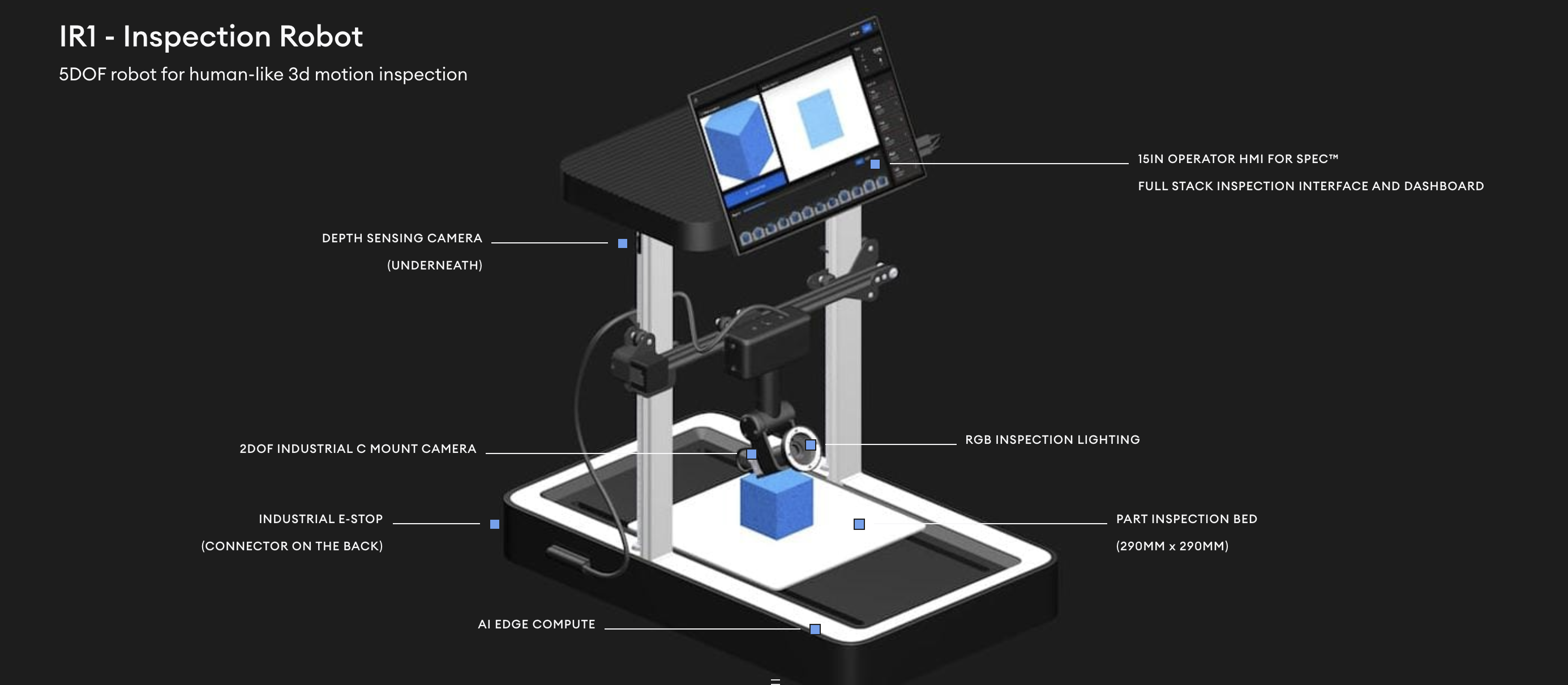Two years and more than $17 million after it first began working on its robots for quality assurance, the Los Angeles-based Elementary Robotics has finally made its products commercially available.
The company already boasts a few very large initial customers in the automotive industry, consumer packaged goods and aerospace and defense, including Toyota, according to chief executive Arye Barnehama. Now, the robotics technology that Barnehama and his co-workers have been developing is broadly available to other companies beyond its six initial pilot customers.
The company’s robots look like a large box with a gantry system providing three degrees of freedom, with vertical and horizontal movement as well as a gimbal-mounted camera that can visualize products.

Image credit: Elementary Robotics
As objects are scanned by the robots they’re compared against a taxonomy of objects provided by the companies that Elementary works with to determine whether or not there’s a defect.
Barnehama also emphasizes that Elementary’s robots are not designed to replace every human interaction or assessment in the manufacturing process. “Machine learning paired with humans always performs better,” says Barnehama. “At the end of the day the human is running the factory. We’re not really a lights-out factory.”
Behind the new commercialization push is a fresh $12.7 million in financing that Elementary closed at the end of 2019.
The lead investor in that round was Threshold Ventures, and the firm’s partner, Mo Islam, has already taken a seat on the Elementary Robotics board of directors. Existing investors Fika Ventures, Fathom Capital, Toyota AI Ventures and Ubiquity Ventures also participated in the round, which will be used to allow Elementary Robotics to continue developing and deploying its automation products at scale, the company said.
“Robotics and particularly robotics applied to manufacturing has been an interest of mine,” said Islam. In Elementary Robotics, Islam saw a company that could compete with large, publicly traded businesses like Cognex. The low complexity and ease of deployment of Elementary’s hardware was another big selling point for Islam that convinced him to invest.
Elementary says that it can be up and running at a site in a matter of days and with businesses emphasizing cost-cutting and enabling remote work to ensure worker safety, companies are embracing the technology.
“That’s where we’re really excited to be launching it,” said Barnehama. “If we get parts or data examples we can get that up and running the same day. We can usually show customers within that week we can start showing them the value of that as we get more and more data through the system.”